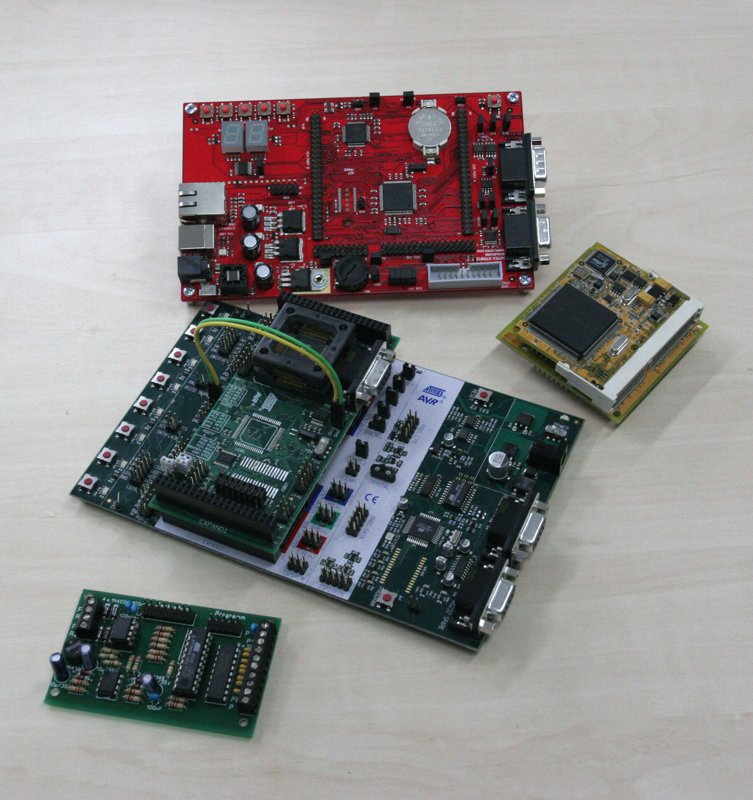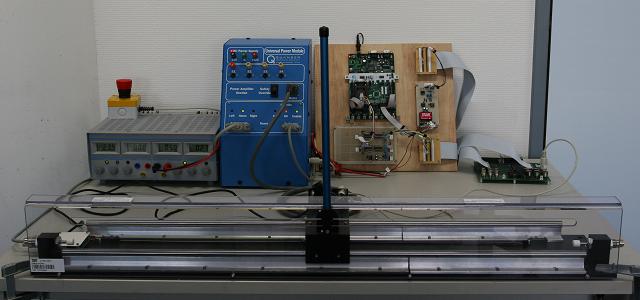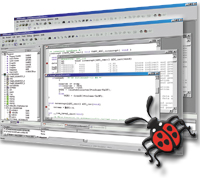| Organizer | Dipl.-Inf. Michael Geisinger |
| Module | IN2106 |
| Type | Praktikum |
| Semester | WS 2010/2011 |
| ECTS | 10.0 |
| SWS | 6 |
| Time & Location | Do, 13:15 - 17:45, MI 03.05.012 |
| First Session | Do, 21.10.2010, 13:15 - 17:45 |
| Second Session | Do, 04.11.2010, 13:15 - 17:45 (at weekly interval afterwards) |
| Certificate | for successfully completing all exercises |
| "Vorbesprechung" | by request via e-mail |
| Registration | not possible any more |
Registration
- No places remaining.
News
- The course will be held in English language if there is at least one English speaking participant. The materials will be in English language.
Materials
- ATmega168 data sheet · STK500 manual
- Introduction
- Exercise 01 · blinky.c
- Exercise 02 · printf.c · uart_params.h
- Exercise 03
- Exercise 04
- Exercise 05
- Exercise 06
- Exercise 07 · TSic™ datasheet · ZACwire™ specification
- Exercise 08 · EA-DOG-M datasheet · ST7036 datasheet
- Exercise 09 · modbus_crc16.c · Modbus Application Protocol · Modbus over Serial Line
- Exercise 10
- Exercise 11
Description / Beschreibung
| The importance of embedded systems is constantly increasing. More and more buildings and industrial plants are being networked and the production automated. But also in everyday life, embedded systems have become essential in devices like washing machines, refrigerators and TV sets. Embedded microcontrollers are the most important components in this context that are capable of efficiently solving automation tasks despite their small size and energy consumption. | Die Bedeutung von eingebetteten Systemen nimmt immer stärker zu. Immer mehr Gebäude und Fabriken werden vernetzt, die Produktion automatisiert. Aber auch im Alltag sind eingebettete Systeme z.B. in Waschmaschinen, Kühlschränken und Fernsehern unverzichtbar geworden. Zugpferde dieser Entwicklung sind Mikrocontroller, die trotz ihrer geringen Größe und des geringen Energieverbrauchs in der Lage sind, Automatisierungsaufgaben effizient und direkt "vor Ort" zu lösen. |

Various microcontroller (development) boards
Diverse Mikrocontroller-(Entwicklungs-)Boards
| The "Microcontroller Programming" lab course aims to communicate the basic principles of microcontroller programming. The lab course is restricted on rather small microcontrollers by intent and covers common topics like digital I/O, interrupts, serial communication, timer and driving of sensors and actuators. The participants learn how to use development environments for microcontrollers. After the lab course, they will be able to do small automation tasks using microcontrollers on their own. Prerequisites for the lab course are interest in embedded systems (electronics and microcontrollers). Experience in C programming is very helpful. | Das Praktikum "Microcontroller Programming" vermittelt den Teilnehmern grundlegende Einblicke in die Programmierung von Mikrocontrollern. Das Praktikum schränkt sich bewusst auf besonders kleine Mikrocontroller ein und deckt dabei die gängigsten Funktionen wie digitale Ein-/Ausgabe, Interrupts, serielle Kommunikation, Timer und Ansteuerung von Sensoren und Aktoren ab. Die Teilnehmer erlernen den Umgang mit gängigen Entwicklungswerkzeugen und sind dafür gerüstet, eigenständig einfache Automatisierungsaufgaben durchzuführen. Voraussetzung für die Teilnahme am Praktikum ist vor allem Interesse an eingebetteten Systemen (Elektronik und Mikrocontroller). Erfahrungen in der Programmierung mit C sind sehr hilfreich. |

Inverted pendulum, controlled by a microcontroller
Invertiertes Pendel, gesteuert von einem Mikrocontroller
Development Environment / Entwicklungsumgebung
| The lab course will mainly use the programming language C and the IDE AVRStudio by ATMEL. | Im Praktikum wird überwiegend die Programmiersprache C und die Entwicklungsumgebung AVRStudio von ATMEL eingesetzt. |  |